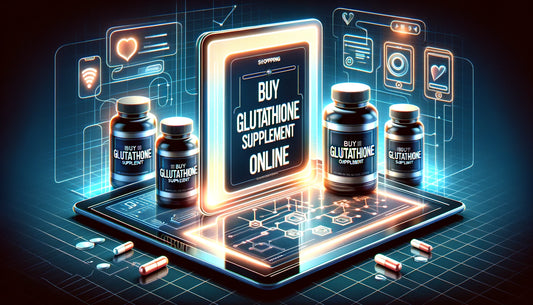

Timing Is Everything: Best Time to Take Glutathione?
Table of Contents
Glutathione is an essential antioxidant produced in our bodies, which plays a vital role in maintaining overall good health. It is known to protect the body against damage caused by toxins and help in boosting the immune system.
However, it is equally crucial to know the right time to consume Glutathione for maximum benefits.
Read on to find out more about the best time to take Glutathione and when it is important to consult your doctor before doing so.

The Importance of Glutathione to the Body
Glutathione, the master antioxidant, is essential for our overall health. It plays a crucial role in detoxifying free radicals and protecting cells from oxidative stress. This powerful tripeptide supports the immune system and aids in the production and repair of DNA, ensuring healthy cell function.
Additionally, glutathione helps maximize the benefits of other antioxidants by recycling them. Whether you're young or older, ensuring that you have enough glutathione is vital. Consider incorporating a glutathione supplement, such as a capsule with a recommended dosage of mg, to support your body's needs. Consult your pharmacist for further guidance.
Why our bodies need Glutathione?
Our bodies need glutathione for several important reasons. As we age, the levels of glutathione naturally decline, making supplementation essential. Glutathione plays a crucial role in maintaining healthy liver function and supporting brain function and cognitive health. It also helps reduce inflammation, benefiting overall health. Additionally, glutathione is involved in cellular energy production, making it an important tripeptide for our bodies. Ensuring we have enough glutathione through supplementation or other means can help support our overall well-being.
Key benefits of Glutathione (Check Here)
What Happens When You Stop Taking Glutathione (Check Here)
Secret to Radiant Skin: Glutathione Benefits for Skin (Check Here)
Best Time to Take Glutathione?
The best time to take glutathione is on an empty stomach, at least 2 hours before or after meals. This is because glutathione is absorbed best when there is no food in the stomach. If you take glutathione with food, it can compete with other nutrients for absorption, which can reduce its effectiveness.
Some people also recommend taking glutathione at night, before bed. This is because glutathione levels tend to be lower at night, and taking it before bed can help to boost your levels overnight.
Here is a summary of the best time to take glutathione:
- On an empty stomach, at least 2 hours before or after meals
- At night, before bed
However, it is important to note that there is no definitive answer to the question of the best time to take glutathione. Some people may find that they absorb it better at different times of the day. It is best to experiment with different times and see what works best for you.

Why Should You Choose Liposomal Glutathione Supplement Over Oral Glutathione Supplementation?
Liposomal glutathione supplements are often considered a more effective way to increase glutathione levels in the body compared to oral glutathione supplementation. Here are some reasons why individuals might choose liposomal glutathione over oral glutathione:
Increased Bioavailability:
- Glutathione is a tripeptide (a small protein) that can be broken down in the digestive system before it is absorbed. Liposomal delivery helps protect glutathione from degradation in the digestive tract, increasing its bioavailability. This means more glutathione is absorbed and reaches the bloodstream intact.
Cellular Absorption:
- Liposomes are small lipid (fat) vesicles that can encapsulate and protect the glutathione molecule. This lipid bilayer structure is similar to the cell membranes in the body, facilitating the absorption of glutathione into cells. This can enhance the intracellular levels of glutathione, which is important for its antioxidant and detoxification functions.
Stability:
- Glutathione can be unstable and easily oxidized in certain environments. Liposomal encapsulation helps protect glutathione from oxidation, ensuring its stability and effectiveness.
Bypassing First-Pass Metabolism:
- When substances are taken orally, they often undergo "first-pass metabolism" in the liver before reaching the systemic circulation. Liposomal formulations can bypass this first-pass metabolism, allowing more of the supplement to reach the bloodstream intact.
Targeted Delivery:
- Liposomes can be designed to target specific tissues or organs, enhancing the delivery of glutathione to areas where it is needed most. This targeted delivery may enhance the therapeutic effects of glutathione.
Gastrointestinal Tolerance:
- Some individuals may experience gastrointestinal discomfort or issues with oral glutathione supplements. Liposomal formulations may be better tolerated by those with sensitive digestive systems.
It's important to note that while liposomal glutathione may offer advantages in terms of absorption and bioavailability, individual responses can vary.
Let’s Sum Up
In conclusion, the timing of taking glutathione supplements can have a significant impact on its effectiveness. It is important to understand the body's absorption pattern and consider whether morning or evening consumption suits you best.
If you have any concerns or pre-existing medical conditions, it is always wise to consult your doctor before starting any glutathione regimen. Take charge of your health and make informed decisions to optimize the benefits of glutathione supplementation.

















